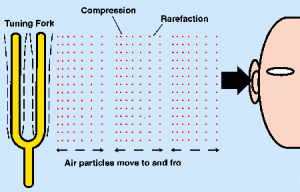 As President of the Publicity Club of New York, an organization whose mission is to help PR pros do a better (i.e., less annoying) job interacting with journalists (of every stripe), I am exposed to a fair share of tales of good, bad and ugly media pitches.
As President of the Publicity Club of New York, an organization whose mission is to help PR pros do a better (i.e., less annoying) job interacting with journalists (of every stripe), I am exposed to a fair share of tales of good, bad and ugly media pitches.
Every five or six weeks PCNY holds a luncheon wherein an esteemed panel of journalists takes their collective shot at the poor put-upon PR pros in the audience.
The same themes invariably surface:
- Familiarize yourself with the outlet before pitching.
- Don’t call to “follow-up.”
- Don’t call at all. We’ll call you.
Occasionally, we’ll get some variations on the pet PR peeve list:
“How many times does my first name need to appear in the pitch letter from some unfamiliar PR person?” lamented Abby Ellin, a frequent contributor to health and fitness pages of The New York Times.
“Half the PR people are trying to get me on the phone. The other half don’t return my calls,” noted engadget’s Peter Rojas.
Yesterday, in his own version of a Christmas gift to PR people, CrunchGear’s Seth Porges offer ed his perspective in a post titled: “Ways PR Agents Piss Off Journalists, and a Few Companies That Do It Right.” He warns:
“While good PR can rarely secure placement for a worthless product, pissing off soft-skinned journalists can ensure products never pop up on pages.”
He also recognized “A Few Good Eggs.” “Below are a few of the companies I’ve had the best experiences in dealing with. No hard-sells, no fake friendliness, and no feeling dirty just for talking on the phone with them. Of course, comparing the Belkin to Microsoft just ain’t fair (budgets, anybody?) so extra points are given to companies who have made the best of minimal resources:
T-Mobile: Some PR people lay the hard-sell so thick that you want to bathe in bleach. I’ve dealt with these guys for years, and I can’t ever recall them actually ASKING for a product placement, much less begging or trying to force one down my throat. They just tell me what they’ve got, and let the cards fall as they may. It’s refreshing. And they throw good parties.
Belkin: Every time you see a Belkin product in print, remember that their entire PR staff consists of two young women with no agency and no ad budget (meaning they can’t threaten to pull ads if they don’t get what they want—which does happen!). Just keep that in mind.
Samsung: These guys get credit for one thing: Unlike their Lucky Goldstar peninsula counterparts, they know better than to give their Korean executives 30 minute speaking blocks at their events. A favorite game for tech journos is to “spot the sleeping reporter†at such events.”
PR CrunchGear PCNY public relations media journalism media relations